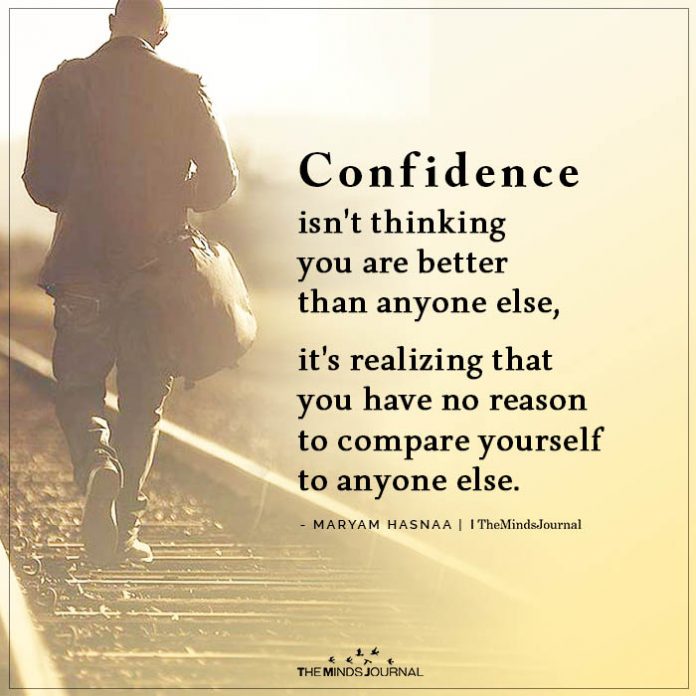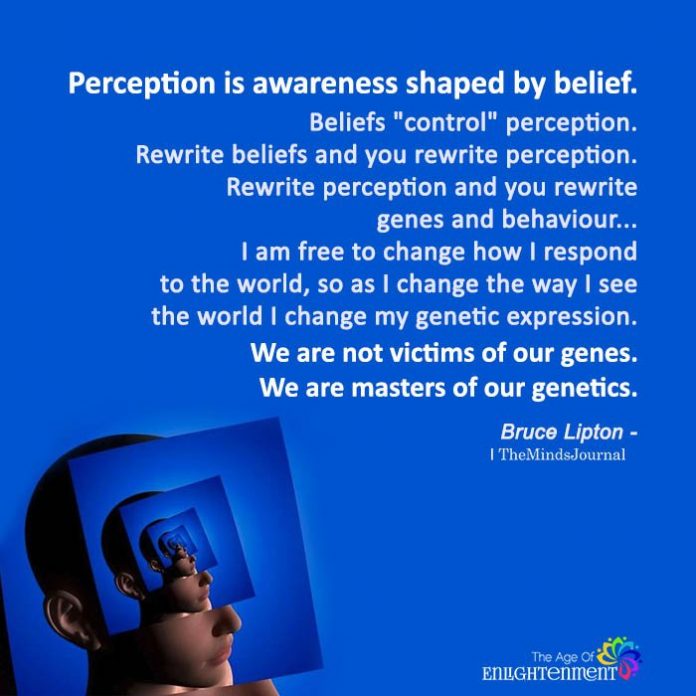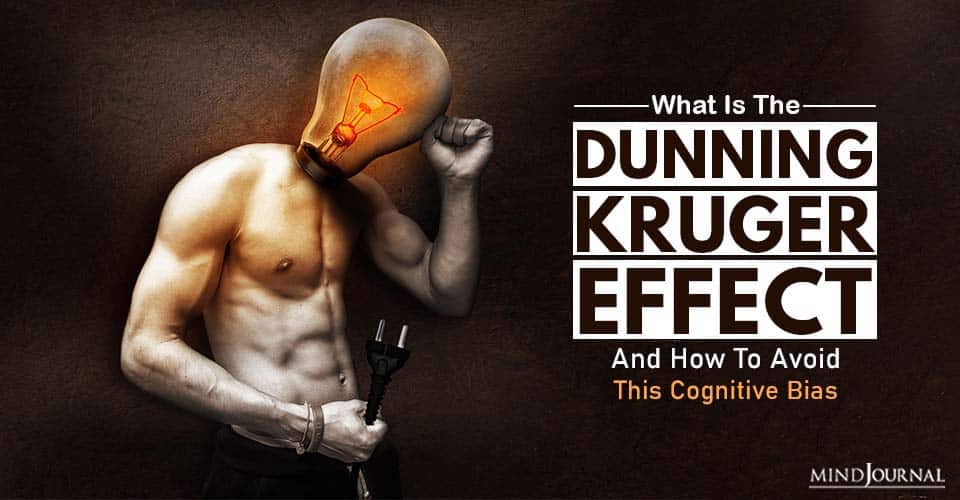Why do the incompetent always feel confident? The Dunning-Kruger effect shows us why some unskilled individuals overestimate their abilities and tend to feel overconfident.
What is the Dunning-Kruger effect?

It is a cognitive bias where some people wrongly believe they are more capable and knowledgeable than they actually are. As they lack self-awareness, unskilled people are often unable to assess and identify their own incompetence accurately.
Educational consultant and author Kendra Cherry, Ms. explains, “The combination of poor self-awareness and low cognitive ability leads them to overestimate their own capabilities.” Most of us have encountered people who have this cognitive bias. The Dunning-Kruger effect offers a scientific explanation for this psychological tendency.
Read 16 Most Common and Weird Mind Tricks Your Brain Plays On You
The science of the Dunning-Kruger Effect
The phenomenon is based on a 1999 research titled ‘Unskilled and unaware of it: how difficulties in recognizing one’s own incompetence lead to inflated self-assessments. The study was conducted by psychologists David Dunning and Justin Kruger at Cornell University.
During a series of four studies, the researchers assessed participants based on their sense of humor, grammar, and logic. They discovered that poor performers rated their skills and abilities much higher. For instance, participants who were in the 12th percentile generally rated themselves in the 62nd percentile, according to Psychology Today.
“Low performers are unable to recognize the skill and competence levels of other people, which is part of the reason why they consistently view themselves as better, more capable, and more knowledgeable than others,” writes Kendra Cherry, MS.

The authors of the study believed the psychological tendency occurred due to a metacognition issue. They are usually unable to self-analyze their own performance and abilities. The researchers wrote that “this overestimation occurs, in part, because people who are unskilled in these domains suffer a dual burden: Not only do these people reach erroneous conclusions and make unfortunate choices, but their incompetence robs them of the metacognitive ability to realize it.”
The research paper added “Several analyses linked this miscalibration to deficits in metacognitive skill, or the capacity to distinguish accuracy from error.”
Read 25 Interesting Psychology Facts That Will Blow Your Mind
The incompetent overestimate themselves
However, the Dunning-Kruger effect is not limited just to students or young individuals. We can find numerous people with this cognitive bias in every aspect of our lives from our families to our coworkers. The concept has been replicated and applied in a number of different domains like logical reasoning, financial knowledge, emotional intelligence, firearm safety in hunters, chess, wine tasting, and medical expertise of surgeons, with the same results.
According to a study of high-tech companies, around 32 to 42% of software engineers self-assessed their abilities as among the best 5% of their organizations.
New York Times bestselling author and leadership coach Mark Murphy writes “A nationwide survey found that 21% of Americans believe that it’s ‘very likely’ or ‘fairly likely that they’ll become millionaires within the next 10 years.” He added that according to one study on faculty members at the University of Nebraska, around “68% rated themselves in the top 25% for teaching ability, and more than 90% rated themselves above average.” Another 2018 study showed that U.S. citizens greatly overestimate their knowledge about politics and government.
“This meta-ignorance (or ignorance of ignorance) arises because lack of expertise and knowledge often hides in the realm of the “unknown unknowns” or is disguised by erroneous beliefs and background knowledge that only appear to be sufficient to conclude a right answer,” explains David Dunning, co-author of the Dunning-Kruger effect.
Read 35+ Mind Bending Psychology Facts About Human Behavior
The competent underestimate themselves
According to the Dunning-Kruger effect, incompetence breeds confidence. But does it mean competence leads to feeling less confident? In a piece for Pacific Standard, Dunning writes “In many cases, incompetence does not leave people disoriented, perplexed, or cautious. Instead, the incompetent are often blessed with an inappropriate confidence, buoyed by something that feels to them like knowledge.”
However, the more knowledge we have about a specific topic, the less confident we feel about what we know regarding that topic. We tend to underestimate our knowledge and abilities the more we know about something as we realize that there is a lot more to learn. And this psychological tendency can actually influence our thoughts, emotions, perspective, and behavior.
One study showed that women tend to underestimate themselves when competing with men. The research analyzed the performance of women and men in a science quiz and discovered that although women performed as well as men, women believed that they were less knowledgeable in scientific reasoning than their male counterparts. The study also revealed that due to this perception, women usually refused to participate in science competitions.
One of the reasons intelligent people doubt themselves is that “They know how much they don’t know, which dwarfs what they do know,” writes author and HR expert Liz Ryan. She adds “They know that their expertise and their wisdom are only a small part of what makes them who they are. They tend to focus on the experiences and credentials they don’t have, rather than on the ones they do.”
In fact, Dunning himself believes that the true sign of intelligence is being “good at knowing what we don’t know.”
Read 9 Steps That Can Build Your Self-Confidence Like Never Before

Ignorant doesn’t mean confident idiot
It’s not that those who overestimate their abilities are stupid or lack intelligence. They simply lack the awareness that they are not as skilled as they believe themselves to be. All of us can experience this psychological phenomenon. “The Dunning-Kruger effect is not synonymous with low IQ.
As awareness of the term has increased, its misapplication as a synonym for “stupid” has also grown. It is, after all, easy to judge others and believe that such things simply do not apply to you,” explains educational consultant Kendra Cherry, MS.
David Dunning explains “An ignorant mind is precisely not a spotless, empty vessel, but one that’s filled with the clutter of irrelevant or misleading life experiences, theories, facts, intuitions, strategies, algorithms, heuristics, metaphors, and hunches that regrettably have the look and feel of useful and accurate knowledge.” He adds “This clutter is an unfortunate by-product of one of our greatest strengths as a species. We are unbridled pattern recognizers and profligate theorizers.”
When we learn to avoid the impact of the Dunning-Kruger effect, we can learn to focus on personal development. And that can only happen when we are aware of our own incompetence about a topic and ignorance about how much we actually know about it. Dunning writes “Because of the way we are built, and because of the way we learn from our environment, we are all engines of misbelief.”
Read 12 Useful Psychological Tricks That’ll Give You An Edge When Dealing With People
How to avoid the Dunning-Kruger Effect
As all of us are likely to experience the Dunning-Kruger effect in life, understanding ourselves better and learning how the mind works can enable us to rectify the mistakes we are prone to making.
But how can you assess your own knowledge and abilities accurately when you have likely overestimated yourself already? Can you rely on your self-assessment?
Here are a few simple yet effective ways we can avoid falling into the pit of ignorance and experiencing the Dunning-Kruger effect:
1. Learn and study
If you think you have gained expertise about a particular topic, then make sure you learn more about it. Explore the topic in depth and try to figure out what more you need to know about it. This will help you gain additional valuable knowledge and be more focussed.
“Keep learning and practicing. Instead of assuming you know all, there is to know about a subject, keep digging deeper. Once you gain greater knowledge of a topic, the more likely you are to recognize how much there is still to learn. This can combat the tendency to assume you’re an expert, even if you’re not,” writes Author Kendra Cherry, MS.
2. Seek advice
You can also avoid this phenomenon by asking for suggestions, feedback, and advice from others. You can ask experts, teachers, coaches, colleagues, and friends for constructive criticism to help you understand your own blind spots.
Kendra adds “Ask other people how you’re doing. Another effective strategy involves asking others for constructive criticism. While it can sometimes be difficult to hear, such feedback can provide valuable insights into how others perceive your abilities.”
3. Question yourself
One of the simplest ways to avoid this cognitive bias is to genuinely and frequently question your own abilities, knowledge, and beliefs. Ask yourself if your decisions and conclusions are based on facts and experience or hunches. Dunning himself believes that we need to challenge ourselves to find out if we are wrong about ourselves. He suggests “Ask yourself where you could be wrong if the decision is an important one. Or how can your plans end up in disaster? Think that through – it matters. Think about what you don’t know. That is, check your assumptions.”
Kendra Cherry explains “Question what you know. Even as you learn more and get feedback, it can be easy to only pay attention to things that confirm what you think you already know. In order to minimize this tendency, keep challenging your beliefs and expectations. Seek out information that challenges your ideas.”
Read 10 Psychology Tricks You Can Use To Influence People
Are you really as good as you believe?

“Ignorance more frequently begets confidence than does knowledge: it is those who know little, not those who know much, who so positively assert that this or that problem will never be solved by science.” – Charles Darwin, The Descent of Man
The Dunning-Kruger effect is one of the most common cognitive biases which we can experience personally or know someone who overestimates themselves. It can significantly impact our thoughts, behaviors and decisions which can drastically change our lives. Although we tend to find faults in others easily and may recognize the phenomenon in people around us, we need to be aware of our own competency as well.
“When you think you’re really good at something, find an objective way to assess your expertise. You may see you’re falling victim to DKE [Dunning-Kruger effect] without knowing it (because you wouldn’t). We are all human, after all,” explains Adi Jaffe, Ph.D., a lecturer at UCLA.
Educational consultant Kendra Cherry, MS concludes “By understanding the underlying causes that contribute to this psychological bias, you might be better able to spot these tendencies in yourself and find ways to overcome them.”
Read How to Develop Self Awareness: 9 Must-See Tips for a Better Life
Here is an interesting video that you may find helpful:












Leave a Reply